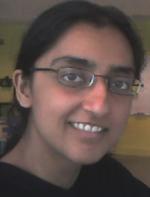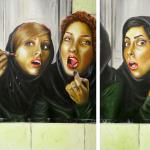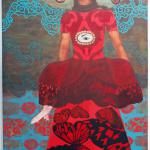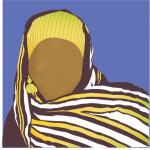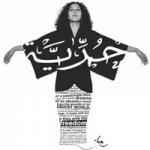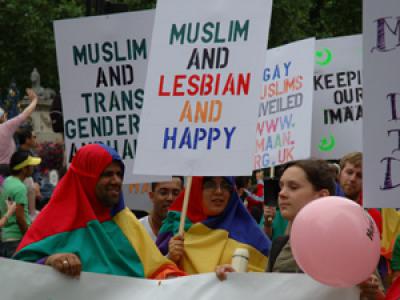
Samina Ali: Can you please explain to our audience what the Safra Project’s mission is as well as the meaning of the word “safra”?
Tamsila Tauqir: Safra has three key aims: to empower Muslim lesbian, bisexual and trans (Muslim LBT) women to deal with the issues they face resulting from their sexual orientation and/or gender identity within the context of their ethnic, cultural and religious background; to raise awareness on the needs of and issues relating to Muslim LBT women in order to make service provision accessible and appropriate; and to eliminate prejudice and discrimination experienced by Muslim LBT women and to promote diversity.
Safra comes from the Arabic word of Safr, meaning to journey and travel. We chose this name as life is a journey and our voluntary organisation aims to support women on this journey through our work.
Why is the work of this organization so crucial?
Women in Muslim communities are marginalised on many levels, whether they are in Muslim majority or minority countries. In the UK this is often compounded by being part of the religious minority, as well as often an ethnic minority, and in our work, sexuality and gender minority. The interplay of these various identities and the fact these identities add up to a whole, means Safra Project is the only organisation specifically attuned to the needs of these women in a holistic approach. These women are subject to multiple challenges and obstacles to simply ‘be’ in everyday life. Safra Project, informed by these women, can be a mediator, advocator and campaigner on behalf of these women, making the links between identity politic services and community organisations. We can raise their concerns without them having to be risk their identity or that of their children and families from the authorities and/or the bigots. This why Safra Project is still needed for now, we will always aim to address all these issues often in collaboration, in the hope one day we are no longer needed.
Muslims widely believe that homosexuality is forbidden in Islam. Yet the word “homosexuality” does not exist in the Qur’an. In fact, some scholars argue that it’s possible to view same-sex relationships that embody the Qur’anic visions of love and companionship positively. Although Safra is not a faith group, what is your message to women who are lesbian and Muslim about how to reconcile these two parts of their lives?
It is important to note that Safra Project is not a religious organisation while at same time addressing the impact that religion has on the women we work with. Due to the demand in requests from the women we work with we consequently conducted research on the subject of Islam and same-sex sexuality. This is available on our website along with some resources for anyone wanting to find more information about the subject. It’s here where we often direct women who have questions about faith and sexuality or gender identity. We also work with a number of scholars and imams that are experts in this area to whom we signpost enquiries. Essentially, we offer people support groups, information and resources that we’ve developed and gathered for individuals to make up their own mind on the subject. There are enough so called religious experts out there already telling everyone what they should and shouldn’t do, but the Qur’an itself instructs all believers to seek knowledge for themselves and not to simply follow blindly, as well as the relationship between the individual and Allah (swt) is direct requiring no intermediaries. Being part of the knowledge bank is part of our role.
It’s important for the audience to know that issues faced by Muslim LBT women are often very different than those faced by, say, secular lesbians living in San Francisco. Can you briefly describe some issues that are very specific to Muslim LBT women?
Muslim LBT women often come across additional issues separate from secular lesbians due to the rampant Islamaphobia and racism in society, the best way to describe this is by recounting a couple of incidents. A number of years ago Safra Project took part in Gay Pride, where some of our members wore the hijab and thereby were visibly recognisable as Muslim. We were harassed and assaulted by some gay men with Islamaphobic, racist and misogynistic abuse as well as having beer thrown at us. No one from the march intervened; in fact others stood by and encouraged the abusers in their actions. It was a passing cab driver who came to our aid, and it’s worth noting he was of South Asian descent. We’ve also had a trans woman harassed at a trans youth group, for bringing a rucksack to a meeting. Other youth members accused her of being a bomb plotter and they weren’t joking around. The group worker didn’t take the harassment seriously and the young Muslim trans woman soon stopped going to the group. This is a state funded group so money that is meant to support her isn’t going to be accessible to her or others like her.
Along with the Inclusive Mosque Initiative, there’s the Unity Mosque in Toronto that’s queer friendly. Salaam Canada is a gay group that recently hosted the annual Ramadan dinner for the Canadian Council of Muslim Women. Despite all this, the gay Muslim movement is still very much at an embryonic stage and in great need of support. What still needs to happen to help move this movement forward?
Authority to speak is a significant issue. Often the apologetics or non-Muslims are seen by the media as ‘impartial’ enough to speak about Muslims but those of us in the movements are not seen as objective enough or -- because we challenge the injustices of the privileged -- we are seen as too controversial to be given a voice. This happens despite that fact that it is our organisation and similarly others which are embedded in the Muslim communities we work with, gathering the empirical evidence and case studies to substantiate our position to bring about change. We are on the frontline when backlash comes after the whims and ignorance of others are often given voice in the media, it doesn’t affect them as they’re not part of the Muslim communities, but it affects us, our families, neighbours and community.
Funding, or the lack of it, is a key issue for Safra Project and the organisations mentioned which are trying to bring about positive change in Muslim communities. Until our work is financially recognised as a key element in social improvement for all, change moving forward is going to be very slow and may even stall.
The other key change that has been an ongoing challenge is sexism and misogyny in society, not just Muslim society but in mainstream society and this is unfortunately rampant in gay society including amongst gay male Muslims. The social justice battles of old are still relevant today, to move forward all people of social conscience need to recognise that the emancipation of one group is dependent on the emancipation of all and then putting this knowledge into action is the challenge.
I’d like to end with you telling us about one of Safra Project’s success stories.
A recent solidarity case has been Safra Project assisting a British Muslim woman bringing her partner over from Pakistan on a fiancé visa. It took just under a year of evidence gathering, writing letters to the Home Office and UK Border Agency, involving the local Member of Parliament, seeking appropriate legal advice but it happened. Just a few months ago the partner came over to the UK and recently the two women had a small civil partnership ceremony to legalise their commitment at which I was a witness. Now plans are being made for the shaadi (wedding), with all the glitz and glamour you can imagine of a Bollywood movie, only then with a nikah (Muslim marriage contract) ceremony will they feel they’re really married. And Safra Project will be there to share their joyous day, inshallah.
You can visit the Safra Project at: http://www.safraproject.org/aboutus.htm
- Log in to post comments
